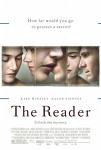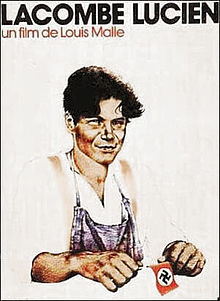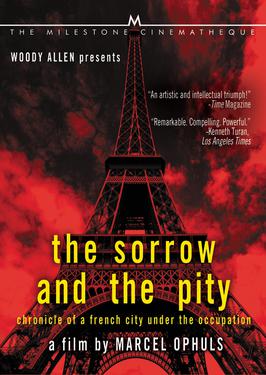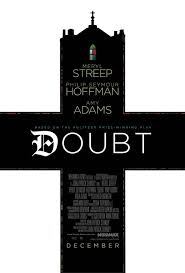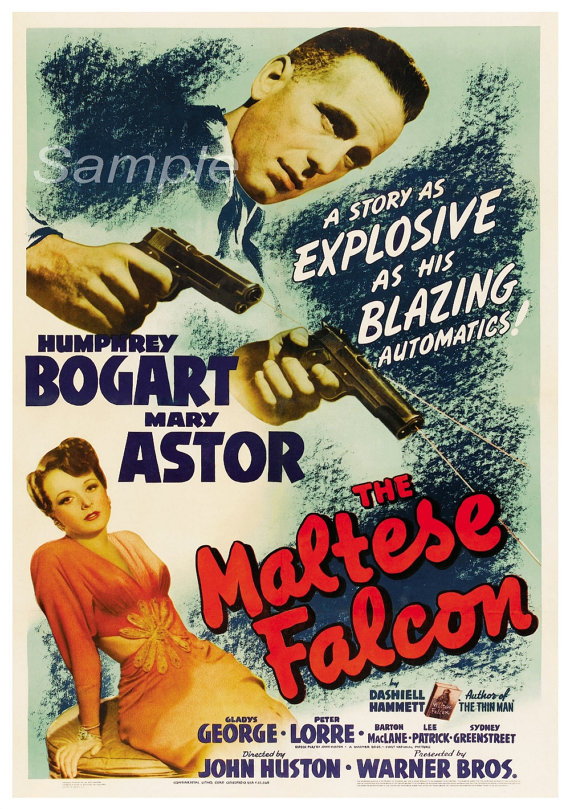
What’s the difference between
order-takers and order-givers?
Most will view “The Reader” as a Holocaust story or a coming-of-age story. On these grounds it is a satisfactory, compelling film.
Its purpose though is to explore a profound intellectual debate — whether a state’s criminal activity can be attributed to individual human beings, or to something far murkier like “policy.”
“The Reader,” from a best-seller by Bernhard Schlink, forces a decision not upon a court of international judges, but a young man in 1960s Germany. The man, Michael Berg, played in his early years by David Kross and later by Ralph Fiennes, is too young to have recognized, and weighed, the crimes of the Nazi era. But through a remarkable circumstance, he is informed enough to thrust such a momentous decision upon a skeptical court — if he so decides.
Michael happens to know something about Hanna Schmitz. As a teenager he meets her in the late 1950s by chance, and though she is much older, an affair results. Schmitz is played by Kate Winslet, undeniably one of the world’s greatest actresses. It is a character similar to Sister Aloysius in “Doubt,” played by Meryl Streep, who will likely be prime competition for Winslet in the 2008 Oscar race. Both roles appear to hinge mightily on unearthing truth. But with each, it’s not the truth that affects her actions so much, but how the character feels about the truth that makes her actions powerful.
Schmitz is a strange woman. She lives alone, in sparse surroundings, an extremely guarded person. Curtains in her home appear to depict the Star of David. She would appeal to Michael out of general male human nature; she is a pretty woman who is nice to him just when he is beginning to explore sexuality. But why does he appeal to her? We get the sense he is one of the very few people, for good reason, brave enough to invade Hanna’s space and pierce her emotional wall. Once inside, she can’t resist a moment with him — she is lonely.
The encounters are strictly carried out on Hanna’s terms. Namely, they include Michael reading passages from books, and bathing. Director Stephen Daldry, perhaps trying to raise the bar on “Forgetting Sarah Marshall,” regularly shows the couple sans clothes, including frontal nudity of Michael. These scenes are one area where “The Reader” is less than exceptional, though the scenes might be accomplishing their desired purpose — the affair is not nearly as steamy as it should be given the depictions of the couple. Could it be the sex occurs only because it is the only way Hanna knows to get Michael to read to her?
Two crucial characteristics of Hanna come to light by the middle of the film. One is that, evidenced by her repeated encounters with Michael, she is very accustomed to giving orders. But then we see her promoted at her job, and this is also clear: She is very good at following orders.
Michael’s studies eventually put him in a law school classroom. What is strange is that the class is so small. Could it be that educated young Germans of the time were disheartened by Holocaust cases and preferred different lines of work? Eventually, as the class presents us with a case, we question whether the defense lawyer is even competent. Perhaps the country has long stopped offering any defense for its activities of the 1930s and 1940s and just wants to receive its negative judgment quickly, without argument.
Ah, not so fast — that is why we’re here. Michael’s instructor, Professor Rohl, takes his class on assignment to a war crimes trial. Before, and during, he lays out in simple terms the legal matters. He says the trial is about the laws of the time, not the present, and that it will be acknowledged that the actions were wrong, but the issue is whether they were illegal.
Hannah’s connection to this case will put Michael unexpectedly on the spot, where he will experience his coming-of-age moment of truth. It is fair to speculate that in all likelihood, Michael’s realization would be superfluous, that attorneys somewhere along the line would’ve discovered information about Hanna that would affect the case. This apparent implausibility does not impair the drama that unfolds.
One might also question if Michael actually has a decision to make. He follows Hanna’s lead, and he is not necessarily in a position to change the course of the inquiry until after she has made a damaging statement.
The film is at its best showing Michael during his law school years, but some of the best scenes show him among classmates in earlier years. They are too young to account for Hitler’s era and are smiling, happy-go-lucky teenagers. All except Michael, who is burdened by the Nazi crimes because of his association with Hanna. Where the film struggles is when Ralph Fiennes plays Michael. His daughter is a tease, suggesting a more complicated romantic history. There is a simpleness to his pain, but something seems undelivered about his role, as though he were not the same person as the young man.
The trial sits at the intersection of legality and morality. There is no doubt at least one of the defendants, legally, has been wronged. A level of guilt has been decided, but not supported by evidence.
The question is whether the defendants morally deserve much worse — or whether they too are somehow victims, mere order-takers for a society gone mad.
In its various pursuits of such truths, the Western world has invented executive-type hierarchies that stop at arbitrary levels. At some point the prosecutors will draw a line and declare all above it were order-givers and all below it were order-takers. To call this system legally dubious is a vast understatement, but it is the best system we have.
The result is a process, whether handling corporate, state or military abuses, where generally only the most notorious public figures are tried and convicted, and nearly all of the underlings are punished lightly if at all, for reasons much more pragmatic than philosophical, that their testimony against the highest leaders is necessary and the public patience (and prosecutorial resources) for more than one or two trials on any given subject is limited.
“The Reader” does not offer much in the way of Holocaust images. We hear accounts of what happened to the Jewish women, but we do not see the event in question. The closest we get is Michael’s haunting visit to Auschwitz — not the scene of the crime, but a scene of the crime.
Is it OK to feel sympathy for Hanna? It seems as though the system, ultimately, is somewhat sympathetic to her despite the official conclusions reached about her. The situation in the film evokes cases such as Dred Scott, where even a Supreme Court of premier thinkers can perform an alarming moral act based on an honest belief in a very dubious legality. On their side is the argument that a society without grounding in laws and rules, and strict adherence to them, is doomed to collapse. But we all should know better ... shouldn’t we?
3.5 stars
(January 2009)
“The Reader” (2008)
Starring Kate Winslet as Hanna Schmitz ♦ Ralph Fiennes as Michael Berg ♦ David Kross as Young Michael Berg ♦ Jeanette Hain as Brigitte ♦ Susanne Lothar as Carla Berg ♦ Alissa Wilms as Emily Berg ♦ Florian Bartholomäi as Thomas Berg ♦ Friederike Becht as Angela Berg ♦ Matthias Habich as Peter Berg ♦ Frieder Venus as Doctor ♦ Marie-Anne Fliegel as Hanna’s Neighbor ♦ Hendrik Arnst as Woodyard Worker ♦ Rainer Sellien as Teacher ♦ Torsten Michaelis as Sports Master ♦ Moritz Grove as Holger ♦ Joachim Tomaschewsky as Stamp Dealer ♦ Barbara Philipp as Waitress ♦ Hans Hohlbein as Clerk ♦ Jürgen Tarrach as Gerhard Bade ♦ Kirsten Block as Female Judge ♦ Vijessna Ferkic as Sophie ♦ Vanessa Berthold as Sophie’s Friend ♦ Benjamin Trinks as Holger’s Friend ♦ Fritz Roth as Tram Supervisor ♦ Hannah Herzsprung as Julia ♦ Jacqueline Macaulay as Heidelberg Lecturer ♦ Volker Bruch as Dieter Spenz ♦ Bruno Ganz as Professor Rohl ♦ Karoline Herfurth as Marthe ♦ Max Mauff as Rudolf ♦ Ludwig Blochberger as Seminar Group Student #1 ♦ Jonas Jägermeyr as Seminar Group Student #2 ♦ Alexander Kasprik as Seminar Group Student #3 ♦ Burghart Klaußner as Judge ♦ Sylvester Groth as Prosecuting Counsel ♦ Fabian Busch as Hanna’s Defense Counsel ♦ Margarita Broich as Co-Defendant #1 ♦ Marie Gruber as Co-Defendant #2 ♦ Lena Lessing as Co-Defendant #3 ♦ Merelina Kendall as Co-Defendant #4 ♦ Hildegard Schroedter as Co-Defendant #5 ♦ Lena Olin as Rose Mather / Ilana Mather ♦ Alexandra Maria Lara as Young Ilana Mather ♦ Martin Brambach as Remand Prison Guard #1 ♦ Michael Schenk as Remand Prison Guard #2 ♦ Ava Eusepi-Harris as Young Julia ♦ Nadja Engel as Mail Room Guard #1 ♦ Anne-Kathrin Gummich as Mail Room Guard #2 ♦ Carmen-Maja Antoni as Prison Librarian ♦ Petra Hartung as Head Prison Guard ♦ Linda Bassett as Ms. Brenner ♦ Beata Lehmann as Ms. Brenner’s Secretary ♦ Heike Hanold-Lynch as Prison Guard ♦ Bettina Scheuritzel as Gate Guard ♦ Robin Lyn Gooch as Ilana’s Maid ♦ Rich Odell as Cab driver
Directed by: Stephen Daldry
Written by: David Hare
Written by: Bernhard Schlink (book)
Producer: Anthony Minghella
Producer: Sydney Pollack
Producer: Donna Gigliotti
Producer: Redmond Morris
Co-producer: Henning Molfenter
Co-producer: Charlie Woebcken
Associate producer: Michael Simon de Normier
Associate producer: Nora Skinner
Associate producer: Tarik Karam
Line producer: Arno Neubauer
Executive producer: Bob Weinstein
Executive producer: Harvey Weinstein
Co-executive producer: Jason Blum
Original music: Nico Muhly
Editing: Claire Simpson
Casting: Simone Bär ♦ Jina Jay
Production design: Brigitte Broch
Art direction: Christian M. Goldbeck ♦ Erwin Prib
Set decoration: Eva Stiebler
Costume design: Donna Maloney ♦ Ann Roth
Makeup and hair: Ivana Primorac ♦ Gabriele Kent-Horspool ♦ Linda Melazzo ♦ Annett Schulze ♦ Anna Von Gwinner ♦ Matthew Smith ♦ Pauline Fowler
Stunts: Marco Camper
Production manager: Arno Neubauer
Production manager (New York): Aaron Levine
Assistant production manager: Caren Wiederhold
Post-production supervisor: Jennifer Lane
Unit manager: Jan Enderlein
